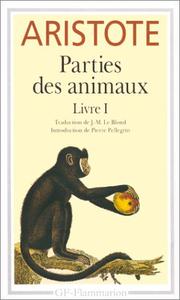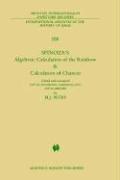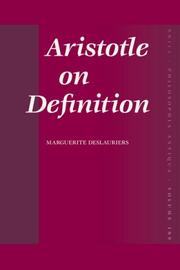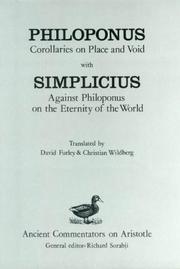| Listing 1 - 10 of 11 | << page >> |
Sort by
|
Book
ISBN: 0856686131 0856686123 9780856686139 Year: 1995 Publisher: Warminster : Aris & Phillips,
Abstract | Keywords | Export | Availability | Bookmark
 Loading...
Loading...Choose an application
- Reference Manager
- EndNote
- RefWorks (Direct export to RefWorks)
Political science --- Science politique --- Early works to 1800 --- Ouvrages avant 1800 --- Philosophy --- Political science - Philosophy - Early works to 1800

ISBN: 2080707841 9782700734232 9782080707840 2700734238 Year: 1995 Volume: 784 Publisher: Paris : Garnier-Flammarion,
Abstract | Keywords | Export | Availability | Bookmark
 Loading...
Loading...Choose an application
- Reference Manager
- EndNote
- RefWorks (Direct export to RefWorks)
Biologie --- Zoologie --- Philosophie. --- Zoology --- Animal locomotion --- Science --- Philosophy --- Biologie - Philosophie. --- Zoologie - Ouvrages prelinneens --- Science - Philosophy - Early works to 1800
Book
ISBN: 9780199265008 0199265003 0191732710 Year: 2007 Volume: 12 Publisher: Oxford : Clarendon Press,
Abstract | Keywords | Export | Availability | Bookmark
 Loading...
Loading...Choose an application
- Reference Manager
- EndNote
- RefWorks (Direct export to RefWorks)
Winds --- Heat --- Motion --- Physics --- Science --- Vents --- Chaleur --- Mouvement --- Physique --- Sciences --- Early works to 1800 --- Early works to 1800. --- Philosophy --- Ouvrages avant 1800 --- Philosophie --- Winds - Early works to 1800. --- Heat - Early works to 1800. --- Motion - Early works to 1800. --- Physics - Early works to 1800. --- Science - Philosophy - Early works to 1800.
Book
ISBN: 9780197264805 9780197266649 9780197266946 0197266649 0197266940 0197264808 Year: 2011 Publisher: Oxford Oxford university press
Abstract | Keywords | Export | Availability | Bookmark
 Loading...
Loading...Choose an application
- Reference Manager
- EndNote
- RefWorks (Direct export to RefWorks)
William of Ockham was a medieval English philosopher and theologian (he was born about 1285, perhaps as late as 1288, and died in 1347 or 1348). In 1328 Ockham turned away from 'pure' philosophy and theology to polemic. From that year until the end of his life he worked to overthrow what he saw as the tyranny of Pope John XXII (1316-1334) and of his successors Popes Benedict XII (1334-1342) and Clement VI (1342-1352). This campaign led him into questions of ecclesiology (the study of the nature and structure of the Christian Church, e.g. of the functions and powers of the pope) and political philosophy. The Dialogus purports to be a transcript made by a mature student of lengthy discussions between himself and a university master about the various opinions of the learned on the matters disputed between John XXII and the dissident Franciscans. The student is usually the initiator; he chooses the topics, asks most of the questions and decides when he has heard enough. The master is, so to speak, an expert witness whom the student examines. This volume publishes an edition of two elements of the Dialogus. Part 2 of the Dialogus is not in dialogue form and may not to be the work of Ockham himself. Part 3 is divided into two tracts. Tract 1, which is reproduced in this volume, is on the power of the Pope and clergy. Liberal thinking in modern times builds on certain earlier ancient and medieval political ideas, which Ockham reasserted, defended and helped to perpetuate. Thus there are elements in his ecclesiology and political philosophy that anticipate the views of Locke, Mill, and other modern liberals.
Papacy --- Theology --- Catholic Church --- Clergy --- Church and state - Holy Roman Empire - Early works to 1800 --- Church and state - Catholic Church - Early works to 1800 --- Political science - Philosophy - Early works to 1800 --- Clergy - Office - Early works to 1800 --- William, - of Ockham, - approximately 1285-approximately 1349. - De iuribus Romani imperii --- William, - of Ockham, - approximately 1285-approximately 1349. - Dialogus --- Holy Roman Empire - Politics and government - Early works to 1800 --- Catholic Church - Clergy - Early works to 1800 --- Papacy - Early works to 1800 --- Theology - Early works to 1800

ISBN: 9024731496 9024724333 9401087539 9400950977 9789024731497 Year: 1985 Volume: 108 108. Publisher: Dordrecht ; Boston, MA ; Lancaster : Martinus Nijhoff,
Abstract | Keywords | Export | Availability | Bookmark
 Loading...
Loading...Choose an application
- Reference Manager
- EndNote
- RefWorks (Direct export to RefWorks)
Probabilities --- Rainbows --- Science --- 551.593.62 --- Natural science --- Science of science --- Sciences --- Rainbow --- Meteorological optics --- Probability --- Statistical inference --- Combinations --- Mathematics --- Chance --- Least squares --- Mathematical statistics --- Risk --- 551.593.62 Rainbows --- Philosophy --- Probabilités --- Early works to 1800. --- Early works to 1800 --- Ouvrages avant 1800 --- Philosophie --- Spinoza (Baruch) --- Spinoza (Baruch). --- Natural sciences --- Probabilités. --- Rainbows - Early works to 1800 --- Probabilities - Early works to 1800 --- Science - Philosophy - Early works to 1800 --- de Spinoza, Benedictus --- Spinoza, baruch (1632-1677) --- Critique et interpretation --- 17e siecle --- Probabilités.
Book
ISSN: 00791687 ISBN: 9789004310087 9004310088 9789004325289 900432528X Year: 2017 Volume: 144 Publisher: Leiden Boston
Abstract | Keywords | Export | Availability | Bookmark
 Loading...
Loading...Choose an application
- Reference Manager
- EndNote
- RefWorks (Direct export to RefWorks)
The so-called eighth Stromateus (‘liber logicus’) by Clement of Alexandria (d. before 221 C.E.) is an understudied source for ancient philosophy, particularly the tradition of the Aristotelian methodology of science, scepticism, and the theories of causation. A series of capitula dealing with inquiry and demonstration, it bears but few traces of Christian interests. In this volume, Matyáš Havrda provides a new edition, translation, and lemmatic commentary of the text. The vexing question of the origin of this material and its place within Clement’s oeuvre is also addressed. Defending the view of ‘liber logicus’ as a collection of excerpts made or adopted by Clement for his own (apologetic and exegetical) use, Havrda argues that its source could be Galen’s lost treatise On Demonstration .
Philosophy, Ancient. --- Science --- Philosophy --- Methodology --- Methodology. --- Philosophy. --- Clement, --- Stromata (Clement, of Alexandria, Saint). --- Clemens Alexandrinus --- 276 =75 CLEMENS ALEXANDRINUS --- 276 =75 CLEMENS ALEXANDRINUS Griekse patrologie--CLEMENS ALEXANDRINUS --- 276 =75 CLEMENS ALEXANDRINUS Patrologie grecque--CLEMENS ALEXANDRINUS --- Griekse patrologie--CLEMENS ALEXANDRINUS --- Patrologie grecque--CLEMENS ALEXANDRINUS --- Philosophy, Ancient --- Philosophie ancienne --- Sciences --- Early works to 1800. --- Philosophie --- Ouvrages avant 1800 --- Méthodologie --- Natural science --- Science of science --- Ancient philosophy --- Greek philosophy --- Philosophy, Greek --- Philosophy, Roman --- Roman philosophy --- Clemens, --- Clemens, Titus Flavius, --- Clément, --- Clemente, --- Klemens, --- Klēmens, --- Kliment, --- Titus Flavius Clemens, --- إكليمنضس السكندري --- Klēmēs, --- Natural sciences --- Science - Philosophy - Early works to 1800 --- Science - Methodology - Early works to 1800
Book
ISBN: 1317021495 1315554720 1409452956 9781409452959 9781409452942 1409452948 9781472402929 1317021487 Year: 2013 Publisher: Burlington
Abstract | Keywords | Export | Availability | Bookmark
 Loading...
Loading...Choose an application
- Reference Manager
- EndNote
- RefWorks (Direct export to RefWorks)
George Gemistos Plethon (c. 1360-1454) was a remarkable and influential thinker, active at the time of transition between the Byzantine Middle Ages and the Italian Renaissance. His works cover literary, historical, scientific, but most notably philosophical issues. Plethon is arguably the most important of the Byzantine Platonists and the earliest representative of Platonism in the Renaissance. This book provides a new study of Gemistos' philosophy. The first part is dedicated to the discussion of his 'public philosophy', in the second, most extensive, part of the book the Platonism of Plethon
Gemistus Plethon, George, --- Gemisto Pletone, Giorgio, --- Gemistos, Geōrgios, --- Gemistos-Plēthōn, G. --- Gemistus Pletho, Georgius, --- Pletho, Georgios Gemistus, --- Plēthōn, --- Plethon, George Gemistus, --- Plēthōn, Geōrgios Gemistos, --- Pletón, Jorge Gemisto, --- Political science --- Religion --- Philosophy --- Byzantine Empire --- Intellectual life. --- Religion, Primitive --- Atheism --- Irreligion --- Religions --- Theology --- Administration --- Civil government --- Commonwealth, The --- Government --- Political theory --- Political thought --- Politics --- Science, Political --- Social sciences --- State, The --- Byzantium (Empire) --- Vizantii︠a︡ --- Bajo Imperio --- Bizancjum --- Byzantinē Autokratoria --- Vyzantinon Kratos --- Vyzantinē Autokratoria --- Impero bizantino --- Bizantia --- Neoplatonism --- Political science - Philosophy - Early works to 1800 --- Religion - Philosophy - Early works to 1800 --- Pletho, Georgius Gemistus, - active 15th century

ISSN: 00791687 ISBN: 9789004156692 9004156690 9786611921118 1281921114 9047420586 9789047420583 9781281921116 6611921117 Year: 2007 Volume: 109 Publisher: Leiden Boston Brill
Abstract | Keywords | Export | Availability | Bookmark
 Loading...
Loading...Choose an application
- Reference Manager
- EndNote
- RefWorks (Direct export to RefWorks)
This book argues that Aristotle offers us a consistent theory of definition, according to which a particular type of definition – one which states the formal cause of a simple item – is fundamental. It begins by considering definitions as indemonstrable first principles in demonstrations, and inquires how such definitions can have the certainty required by that role. Later chapters look to the Metaphysics to understand how the unity of definitions guarantees their certainty, and to the Topics to discover why definitions must be formulated in terms of the genus and differentia(e) of the object defined. This work contributes to our understanding of the connection between the function of definition in demonstration and its character as a statement of essence.
Logic --- Definition (Philosophy) --- Logique --- Définition (Philosophie) --- Early works to 1800. --- Early works to 1800 --- Ouvrages avant 1800 --- Aristotle --- Language and languages --- Knowledge, Theory of --- Science --- Ontology --- Pragmatism --- Philosophy. --- Methodology --- Philosophy --- Aristotle. --- Definition (Philosophy). --- Définition (Philosophie) --- Definability --- Definition (Logic) --- Undefinability --- Semantics (Philosophy) --- Aristoteles --- Aristote --- Aristotile --- Aristoteles. --- Arisṭāṭṭil --- Aristo, --- Aristotel --- Aristotele --- Aristóteles, --- Aristòtil --- Arisṭū --- Arisṭūṭālīs --- Arisutoteresu --- Arystoteles --- Ya-li-shih-to-te --- Ya-li-ssu-to-te --- Yalishiduode --- Yalisiduode --- Ἀριστοτέλης --- Αριστοτέλης --- Аристотел --- ארסטו --- אריםטו --- אריסטו --- אריסטוטלס --- אריסטוטלוס --- אריסטוטליס --- أرسطاطاليس --- أرسططاليس --- أرسطو --- أرسطوطالس --- أرسطوطاليس --- ابن رشد --- اريسطو --- Pseudo Aristotele --- Pseudo-Aristotle --- アリストテレス --- Language and languages - Philosophy. --- Logic - Early works to 1800. --- Knowledge, Theory of - Early works to 1800. --- Definition (Philosophy) - Early works to 1800. --- Science - Methodology - Early works to 1800. --- Science - Philosophy - Early works to 1800. --- Ontology - Early works to 1800. --- Language and languages - Philosophy - Early works to 1800. --- Pragmatism - Early works to 1800.
Book
ISBN: 3777288063 9783777288062 Year: 1988 Volume: 25 Publisher: Stuttgart : A. Hiersemann,
Abstract | Keywords | Export | Availability | Bookmark
 Loading...
Loading...Choose an application
- Reference Manager
- EndNote
- RefWorks (Direct export to RefWorks)
Philosophy, Medieval --- Philosophy --- Rhetoric, Medieval --- Philosophie médiévale --- Philosophie --- Rhétorique médiévale --- Byzantine Empire --- Empire byzantin --- Politics and government --- Politique et gouvernement --- Political science --- Greek language, Medieval and late --- -Philosophy --- Early works to 1800 --- Rhetoric --- -Early works to 1800 --- -Political science --- -Greek language, Medieval and late --- -Greek language, Byzantine --- Administration --- Civil government --- Commonwealth, The --- Government --- Political theory --- Political thought --- Politics --- Science, Political --- Social sciences --- State, The --- Mental philosophy --- Humanities --- Philosophie médiévale --- Rhétorique médiévale --- Greek language, Byzantine --- Rhetoric&delete& --- Philosophy&delete& --- Gemistus Plethon, George, --- Byzantine Greek language --- Medieval and late Greek language --- Political science - Philosophy - Early works to 1800 --- Greek language, Medieval and late - Rhetoric - Early works to 1800 --- Philosophy - Early works to 1800 --- Gemistus Plethon, George, - active 15th century --- Byzantine Empire - Politics and government - 1081-1453

ISBN: 0715622501 9780715622506 Year: 1991 Publisher: London Duckworth
Abstract | Keywords | Export | Availability | Bookmark
 Loading...
Loading...Choose an application
- Reference Manager
- EndNote
- RefWorks (Direct export to RefWorks)
Aristote, --- Influence --- Eternal return --- Eternal recurrence --- Eternity --- -Eternal recurrence --- Cosmology --- Place (Philosophy) --- Science --- Natural science --- Science of science --- Sciences --- Philosophy --- Cycles --- Aristotle. --- Aristoteles --- Aristote --- Aristotle --- Aristotile --- Philosophy of nature --- Aristoteles. --- Influence. --- Arisṭāṭṭil --- Aristo, --- Aristotel --- Aristotele --- Aristóteles, --- Aristòtil --- Arisṭū --- Arisṭūṭālīs --- Arisutoteresu --- Arystoteles --- Ya-li-shih-to-te --- Ya-li-ssu-to-te --- Yalishiduode --- Yalisiduode --- Ἀριστοτέλης --- Αριστοτέλης --- Аристотел --- ארסטו --- אריםטו --- אריסטו --- אריסטוטלס --- אריסטוטלוס --- אריסטוטליס --- أرسطاطاليس --- أرسططاليس --- أرسطو --- أرسطوطالس --- أرسطوطاليس --- ابن رشد --- اريسطو --- Pseudo Aristotele --- Pseudo-Aristotle --- アリストテレス --- Natural sciences --- Place (Philosophy) - Early works to 1800. --- Eternal return - Early works to 1800. --- Cosmology - Early works to 1800. --- Science - Philosophy - Early works to 1800. --- Lieu (Philosophie) --- Eternité --- Cosmologie --- Early works to 1800. --- Early works to 1800 --- Ouvrages avant 1800 --- Philosophie --- Philoponus, John,
| Listing 1 - 10 of 11 | << page >> |
Sort by
|

 Search
Search Feedback
Feedback About UniCat
About UniCat  Help
Help News
News